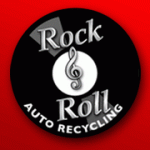Gas vs. Diesel
The rivalry between gas and diesel engines is heating up
…and its consequences for manufacturers, drivers, and the industry as a whole could be profound.
Whether you’re a San Francisco driver shopping for a replacement vehicle or an industry professional, you probably already know that diesel engines are more efficient than gas engines. Thanks in large part to diesel’s ability to leverage lean burn combustion and high compression ratios, diesel engines can extract a thermodynamic efficiency of over 30%. Gas engines, meanwhile, clock in at only around 15% efficiency.
photo source: money.mnogo.mk
But diesel’s advantage over gas engines is being challenged.
First of all, new emission standards have compelled diesel exhaust systems to work better – that’s good for the environment but bad for efficiency. Simultaneously, gas engine technologies are constantly improving. Turbochargers, camshaft timers, homogeneous charge compression ignitions and even lean-burn combustion technologies are all incrementally improving gas efficiency. Some cutting-edge technologies, which use compression ratios and turbocharging, allegedly can already increase thermal efficiency above 40%.
That said, diesel engines are also incrementally getting better. After-treatment systems have been improving, for instance. And variable valve timers and other hardware improvements could help diesel keep its lead, at least in the short-term.
There is also a big wildcard: when and how will the switch to more energy dense fuels occur? We are currently operating in a spark-ignited engine dominated paradigm. A switch to a more energy dense fuel paradigm could change the game in multiple, unpredictable ways.
Diesel fuel is inherently denser than gasoline by about 14% (based on volume), but new hybrid fuels and other technologies are destined to complicate this energy density question.
In any event, the race between gas and diesel redounds to positive effects, both for motorists and industry insiders who want to see progress.
If you want to improve the efficiency of your engine — or deal with other repair or modification issues — the team here at Rock and Roll Auto Parts Recycling can help you make the most strategic, appropriate choices. Connect with us today online or give us a call to talk to one of our expert auto part experts about your best next steps. 925-224-9944
Serving the San Francisco Bay Area and Hawaii – Used, recycled auto parts.


